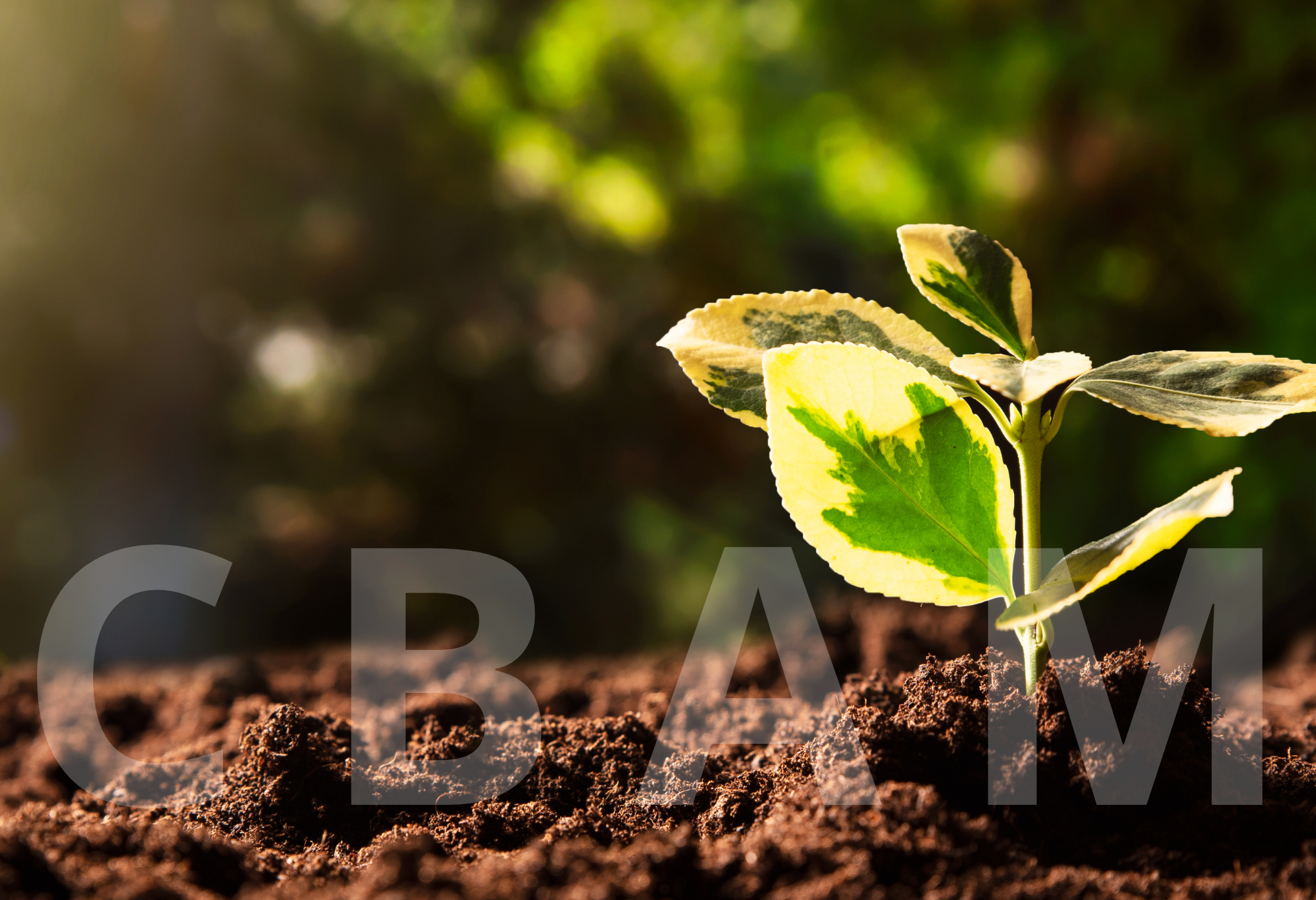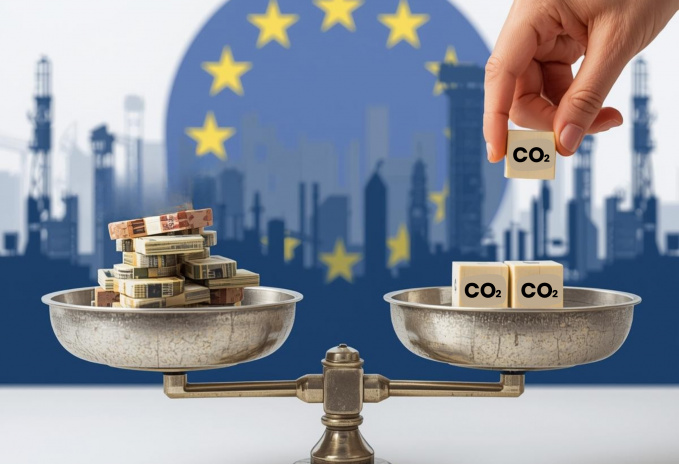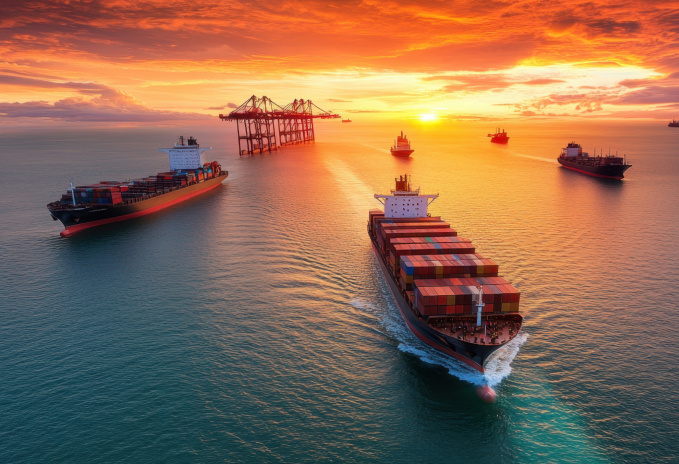Newsletter 12/2025: Important news regarding CBAM and EUDR regulations

CBAM
- fully registered,
- declare emissions contained in goods,
- purchase and submit certificates.
The most significant positive change compared to the transitional period is the adjustment of the de minimis value, which triggers the obligation when exceeded. The original value was EUR 150/import, and the obligation thus applied to virtually all imports.
Now, importers whose annual volume of goods covered by the CBAM is less than 50 tons are exempt, which will ease the burden on many smaller businesses, but will still cover more than 99% of emissions from the products included.
-
If the importer does not exceed this threshold, they are exempt from all CBAM obligations (i.e., they do not need to have the status of an authorized declarant, submit a CBAM declaration, or purchase certificates).
-
Once the 50-ton threshold is exceeded, CBAM applies to all imports for that year.
-
If the importer approaches the 50-ton threshold, they must obtain the status of an authorized declarant before exceeding it. However, if they do not expect to exceed the threshold at this point, they do not need to submit an application at this time. Exceeding the 50-ton threshold without the status of an authorized declarant may result in penalties.
-
The exemption does not apply to electricity and hydrogen, which continue to be subject to the full application of the CBAM mechanism regardless of the quantity of goods imported.
-
At the same time, we would like to emphasize that the change to the de minimis exemption applies only to the definitive period, so nothing changes for reporting during the transitional period (until the end of 2025), and the de minimis exemption remains at EUR 150 per shipment.

If the manufacturer does not provide actual emission values, standard values set by the European Commission will be used. These standard values are likely to be higher than the actual values, with an additional surcharge, and therefore less advantageous for the declarant. The European Commission plans to publish these values by the end of 2025.
What about certificates?
Based on the current revision of the CBAM regulation, the obligation to purchase certificates has been postponed until 2027 (for emissions from goods imported in 2026), so there is still plenty of time to prepare the system.
More detailed information on certificates can be found here.
What does this mean for you and how can we help?
You can already use eSTONE to track which imports are subject to reporting requirements, both by HS codes and by weight. This feature is located in the reporting and statistics section. If your company does not have access to it, please contact your sales representative.

We also recommend continuing to negotiate with suppliers regarding the provision of actual values. As mentioned, these should be more favorable for the calculation than the substitute values determined by the European Commission.
And an important note to conclude:
Further legislative developments are expected as early as 2025 concerning the extension of scope (products in related sectors, the electricity sector) and the methodology for calculating emissions.
EUDR starts on December 31, 2025
For new subscribers to our newsletter, let us remind you what the EUDR is. EUDR is short for the EU Deforestation Regulation. Its aim is to prevent the import and sale of products that have been produced on land that has been deforested or degraded after December 31, 2020. The regulation applies to companies that place commodities such as wood, soy, coffee, cocoa, palm oil, cattle, and natural rubber and their derivatives (e.g., furniture, chocolate, tires) on the EU market or export them from the EU.
I import or export a product that is on the list. What does that mean specifically?
Are you an operator or a trader?
Are you a large or other (medium, small, micro) enterprise?
What do I actually need to monitor and what reports will I have to submit?

Before placing a product on the EU market or exporting it, each operator must:
- Establish a due diligence system and subsequently deal with the submission of the declaration of conformity (DDS) itself.
- This must be a formally established, documented, regularly updated, and reviewed system. It must include:
- Collection of product data
- Assessment of non-compliance risks
- Mitigation measures if risks are higher than negligible
- All records are archived for at least 5 years.
- Perform due diligence on each batch
As you can see, the obligation is quite complex, so even for small and medium-sized enterprises, it is high time to start preparing for this obligation and begin checking off the points to be fulfilled and complied with:
- Check which of your products fall under the EUDR
Find out if you work with any of the seven regulated commodities (wood, cattle, cocoa, coffee, soy, rubber, palm oil) or with products that contain them (e.g., chocolate, paper products, cosmetics, biofuels). - Find out the country of origin and risk level
Assign a risk category (low, standard, high) to each relevant commodity and country of origin. Even a low risk does not exempt you from your obligations.
The list of countries is dynamic and updated according to new data. Companies must continuously monitor changes and adapt their due diligence systems accordingly. - Ensure correct data and responsible person Set who will be responsible for collecting and storing relevant data and documents, including risk assessment, mitigation, archiving, and annual review. Do you have clear checklists and instructions for buyers and communication templates for suppliers so that they know what data to provide?
- Get ready to submit DDS in TRACES
Find out if you know how to correctly fill in the electronic declaration in the TRACES system before placing the product on the market.
On October 21, the European Commission proposed changes, but these have not yet been approved by the European Parliament and the Council of the EU. If approved, the following changes will come into effect:
- Downstream without declaration: manufacturers/distributors further down the chain will no longer be required to submit their own due diligence declarations; the documentation of the first importer will apply.
-
Micro and small businesses: instead of repeated declarations, a simple one-time declaration in the IT system (if the data already exists in the state database, they do not need to fill in anything).
-
Medium and large businesses: applicable from December 30, 2025 + 6-month transition period for checks and enforcement.
-
Micro and small enterprises: application from December 30, 2026.
How can BDP-Wakestone help me?
Given the complexity of the data collected and the processes within the company, which we cannot help you with, the actual submission will probably be the easiest part of the whole process.


